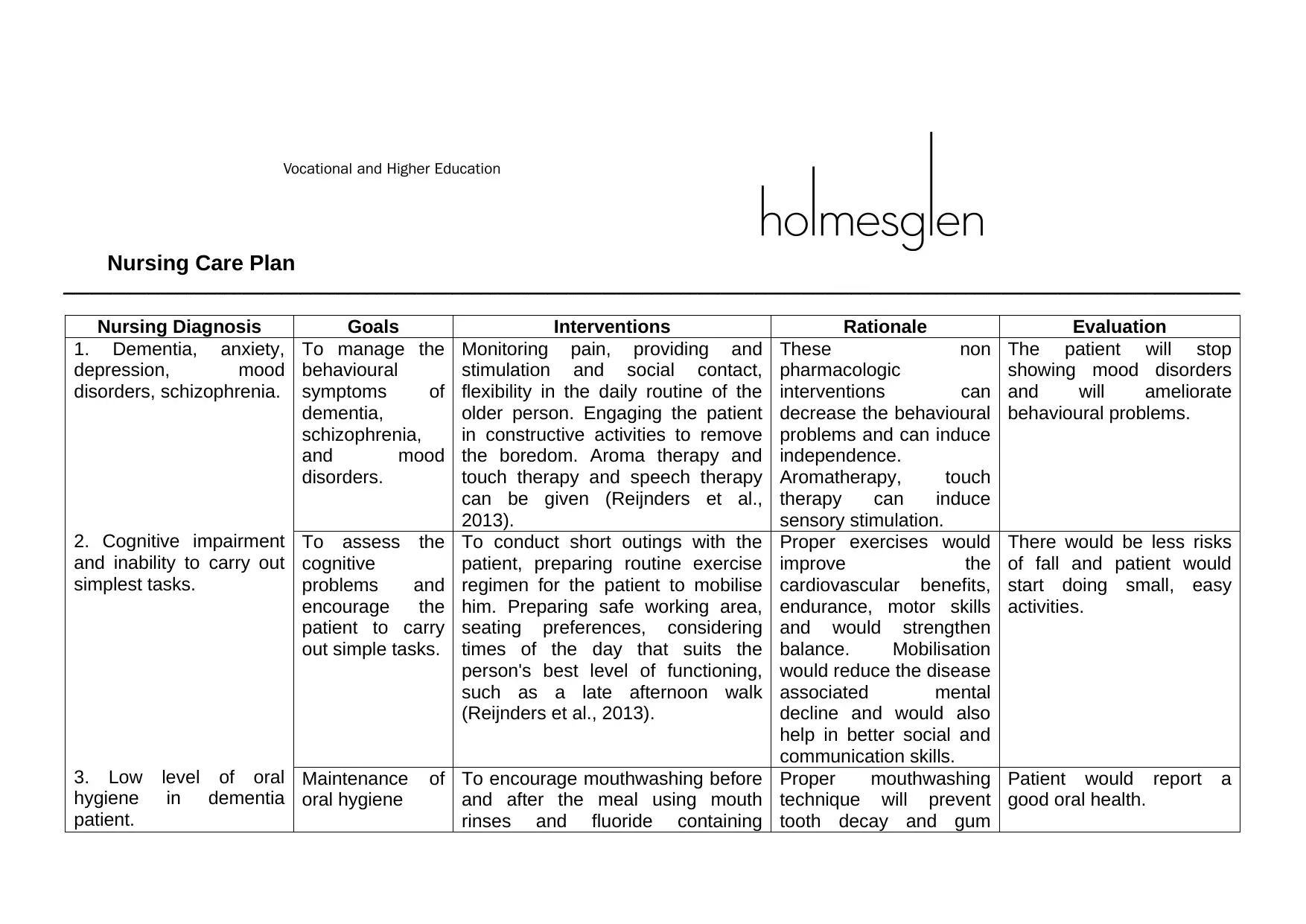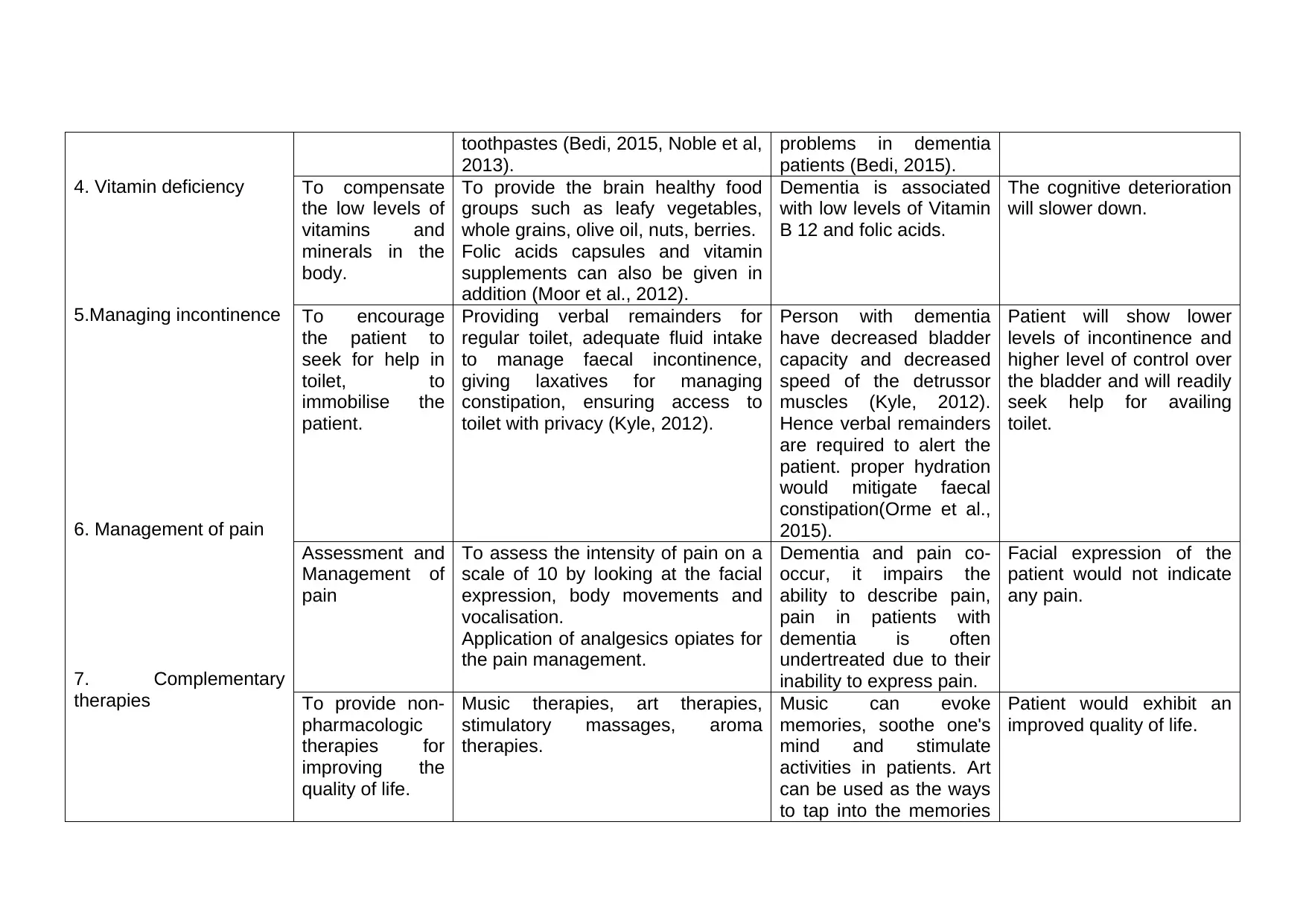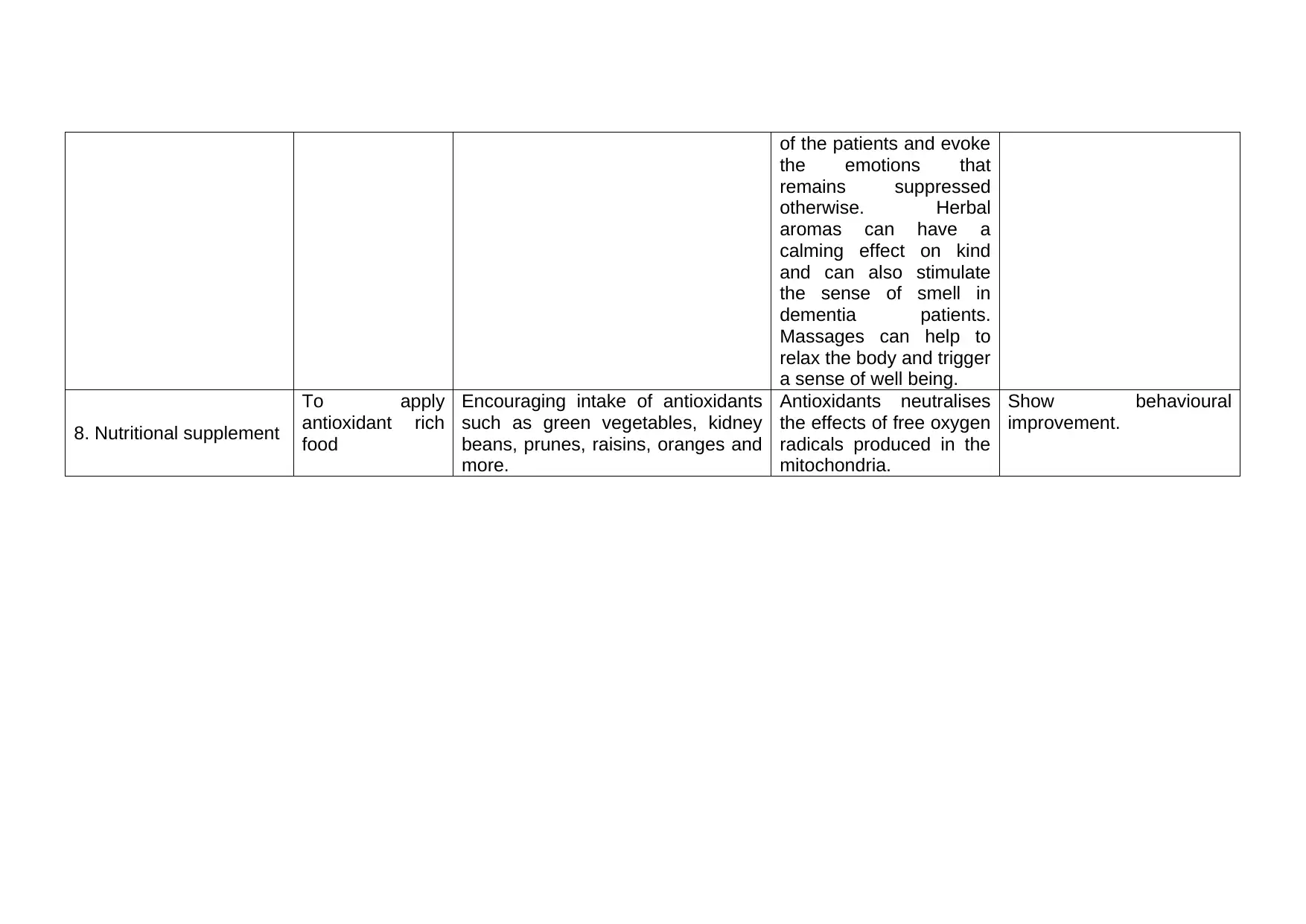Nursing Care Plan: Evidence-Based Strategies for Dementia Patient Care
VerifiedAdded on 2020/05/28
|3
|767
|2584
Practical Assignment
AI Summary
This nursing care plan addresses the multifaceted challenges of caring for patients with dementia, incorporating diagnoses such as anxiety, depression, and mood disorders. It focuses on managing behavioral symptoms, cognitive impairments, and physical issues like incontinence and pain. The plan outlines interventions like aromatherapy, exercise regimens, and nutritional supplements to improve cognitive function and physical health. It emphasizes the importance of maintaining oral hygiene, providing nutritional support, and utilizing both pharmacologic and non-pharmacologic therapies, including music and art therapy, to enhance the patient's quality of life. The plan also stresses the need for assessing and managing pain effectively, considering the patient's potential inability to express discomfort. The evaluation section highlights the expected outcomes, such as improved behavioral symptoms, better cognitive performance, and enhanced overall well-being.
1 out of 3





![[object Object]](/_next/static/media/star-bottom.7253800d.svg)